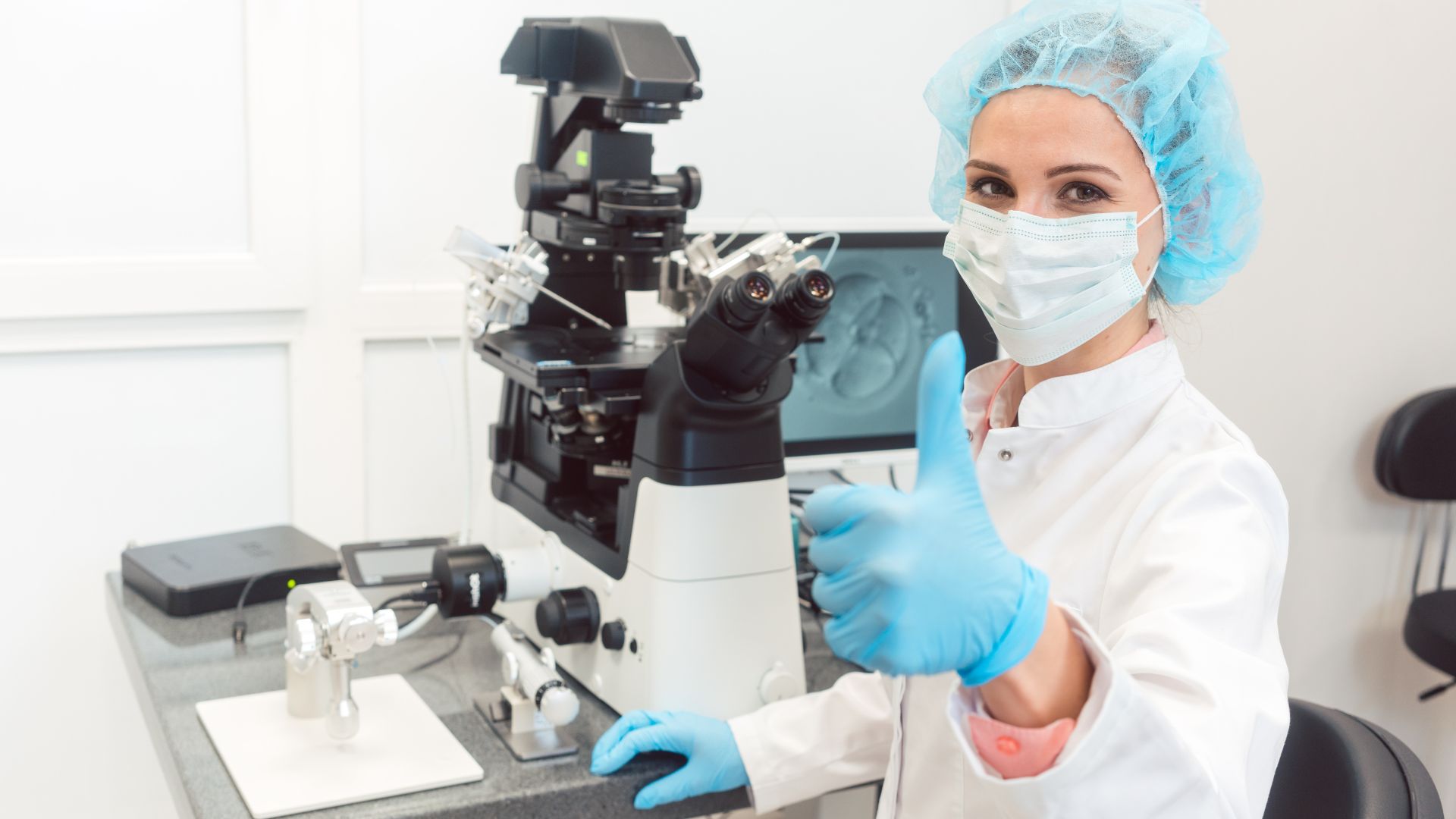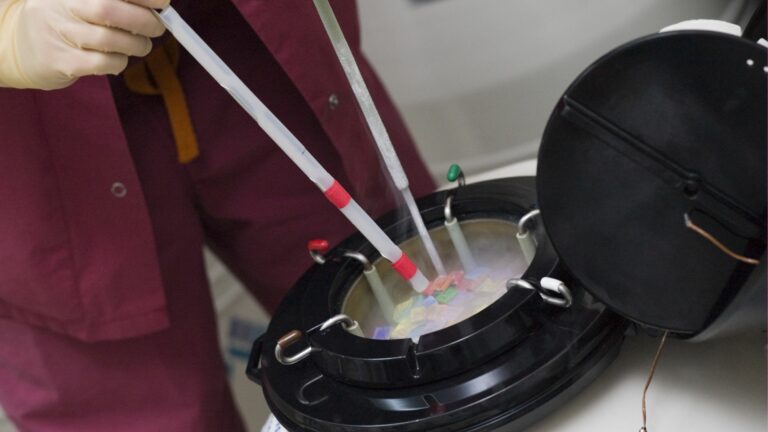
In vitro fertilization (IVF) has opened up new possibilities for countless individuals and couples facing infertility.
But with the rapid pace of research in this field, it can be challenging to stay on top of the factors that impact IVF success rates.
What are the most important things to consider when embarking on an IVF journey? How can you maximize your chances of a successful outcome?
In this article, we dive deep into the latest findings to provide you with the insights you need to make informed decisions.
Key Takeaways
| Insight | Significance |
|---|---|
| Maternal age is the single most important factor influencing IVF success rates. | Women under 35 have a 40-50% success rate per cycle, which drops significantly over 40. |
| Lifestyle factors like BMI, diet, smoking, exercise, and stress management significantly impact IVF outcomes. | Maintaining a healthy weight, eating a Mediterranean diet, avoiding smoking, exercising moderately, and managing stress can improve success rates. |
| Advanced embryo assessment technologies like time-lapse imaging and AI are transforming embryo selection. | These innovations allow for more detailed analysis of embryo development and viability compared to traditional methods. |
| The endometrial environment and timing of transfer are critical for successful implantation. | Personalized tests like the Endometrial Receptivity Analysis (ERA) can pinpoint the optimal window for transfer. |
Maternal Factors: Age, Lifestyle, and Beyond
The Impact of Maternal Age and Lifestyle on IVF Success Rates
A woman’s age is undeniably the most significant factor impacting IVF success rates. Here’s what the numbers tell us:
- Women under 35 have average success rates of 40-50% per IVF cycle.
- Success rates drop significantly for women over the age of 40, primarily due to declining egg quality and quantity (ovarian reserve).
But age isn’t the only maternal factor that matters. Lifestyle choices also play a critical role:
- Weight (BMI): Being significantly underweight or overweight can lower IVF success rates. Obesity impacts hormonal balance, medication response, and even the physical process of egg retrieval. Maintaining a healthy BMI is crucial for optimizing outcomes.
- Diet: The Mediterranean diet pattern, rich in antioxidants, whole grains, healthy fats, and lean protein, is consistently linked to improved fertility and IVF outcomes.
- Lifestyle Habits:
- Smoking damages eggs, reduces ovarian reserve, and lowers implantation rates by up to 50%.
- Moderate exercise, especially when consistent for at least 3 months before IVF, has been shown to have a positive impact.
- Chronic stress disrupts hormones, but mindfulness techniques may improve outcomes.
- Smoking damages eggs, reduces ovarian reserve, and lowers implantation rates by up to 50%.
Nutrients and Supplements: Potential Game-Changers
Certain nutrients and supplements are emerging as potential game-changers in the IVF landscape:
- CoQ10: This powerful antioxidant may improve egg quality, especially in older women. Optimal dosage and duration are still being researched.
- Vitamin D: Sufficient levels seem linked to improved endometrial receptivity and overall IVF outcomes. Many fertility clinics now routinely recommend supplementation.
Importantly, starting some supplements months before IVF may be more effective than taking them only during the treatment cycle.
Tip: Discuss any supplements with your fertility specialist to ensure they are safe and appropriate for your specific situation.
Embryo Development and Selection
Choosing the Best: Innovations in Embryo Assessment
Gone are the days when visual appearance was the only way to assess an embryo’s potential. Today, cutting-edge technologies are allowing for a much deeper analysis:
- Time-lapse Imaging: Continuous monitoring allows for detailed analysis of development patterns.
- Artificial Intelligence (AI): AI algorithms learn to recognize subtle features linked to embryo viability.
Another game-changer is Preimplantation Genetic Testing for Aneuploidy (PGT-A), which analyzes the chromosome count of embryos.
This helps identify embryos with the correct number of chromosomes, increasing implantation chances.
Emerging research is also examining:
- Mosaic Embryos: Embryos with some normal and some abnormal cells, potentially expanding options for viable transfers.
- Metabolic profiling: Non-invasive analysis of the fluid the embryo grows in may predict its developmental potential.
A Guide for Beginners: Understanding Embryo Technologies
If you’re new to the world of IVF, the array of embryo assessment options can be overwhelming. Here are some key points to keep in mind:
- Don’t hesitate to ask your fertility specialist about the embryo assessment methods used at your clinic.
- Discuss with your doctor whether PGT-A is right for you, considering age, medical history, and personal goals.
- Understand that some technologies are still experimental; inquire about your clinic’s access and policies on the latest innovations.
Resource: The American Society for Reproductive Medicine (ASRM) offers a comprehensive guide to IVF: https://www.reproductivefacts.org/faqs/frequently-asked-questions-about-infertility/
Endometrial Environment: The Window of Opportunity
Optimizing Endometrial Receptivity
Successful implantation depends not only on the quality of the embryo but also on the receptivity of the uterine lining.
Here’s what you need to know:
- Implantation is most likely during a specific “window” when the endometrium is optimally receptive.
- Tests like the Endometrial Receptivity Analysis (ERA) can pinpoint this window for an individual, potentially increasing transfer success.
- Endometrial conditions like polyps, fibroids, or a thin lining can hinder implantation and may require treatment before IVF.
- A balanced endometrial microbiome (bacterial community) seems linked to better outcomes. Research is exploring the potential role of probiotics.
A Beginner’s Guide to Boosting Endometrial Health
If you’re just starting your IVF journey, here are some key steps you can take to optimize your endometrial health:
- Focus on the same healthy lifestyle factors that impact overall IVF success: a balanced diet, healthy weight, stress management.
- Discuss any history of irregular cycles, fibroids, or previous implantation failures with your doctor.
- If warranted by your history, consider the ERA test or other investigations into endometrial receptivity.
Resource: Igenomix offers detailed information about the ERA test: https://www.igenomix.com/tests/endometrial-receptivity-test-era
The Future of IVF: Technological Innovations
Artificial Intelligence and Microfluidics
As we look to the future of IVF, two exciting areas of innovation stand out:
- AI: Trained on massive datasets of embryo images, AI algorithms are learning to identify features invisible to the human eye. This may lead to more accurate embryo selection and increased success rates.
- Microfluidics: These dynamic culture systems mimic the conditions inside the body better than traditional dishes. These controlled environments may improve embryo development and quality.
Both AI and microfluidics are active areas of research, with their full potential for IVF still being explored.
A Beginner’s Guide to IVF Technology
If you’re new to the world of IVF, staying informed about technological advancements is key:
- Follow reputable sources for updates on new technologies in fertility treatment.
- Ask your clinic about what technologies they use and their experience with the latest advancements.
- Don’t be afraid of treatments labeled ‘experimental’ – discuss potential risks and benefits with your doctor openly.
Resource: The Human Fertilisation and Embryology Authority (HFEA) provides information about add-ons and new treatments: https://www.hfea.gov.uk/treatments/explore-all-treatments/treatment-add-ons/
The Bottom Line: Individualization Matters
While research offers valuable insights, it’s important to remember that each person’s fertility journey is unique. IVF success depends on a combination of factors tailored to your specific circumstances.
Open communication with your fertility specialist is crucial for making the most informed decisions. And remember, this is a rapidly evolving field with new studies and breakthroughs happening regularly.
Staying Informed as an IVF Patient
- Seek information from reputable fertility clinics, scientific journals, or organizations like ASRM or HFEA.
- Be mindful of overly optimistic claims or treatments lacking scientific evidence.
- Stay hopeful – IVF research offers tremendous potential for improving the future of fertility treatment.
We’d love to hear from you – what has been your experience with IVF? What factors have you found to be most important in your journey? Share your thoughts in the comments below.






